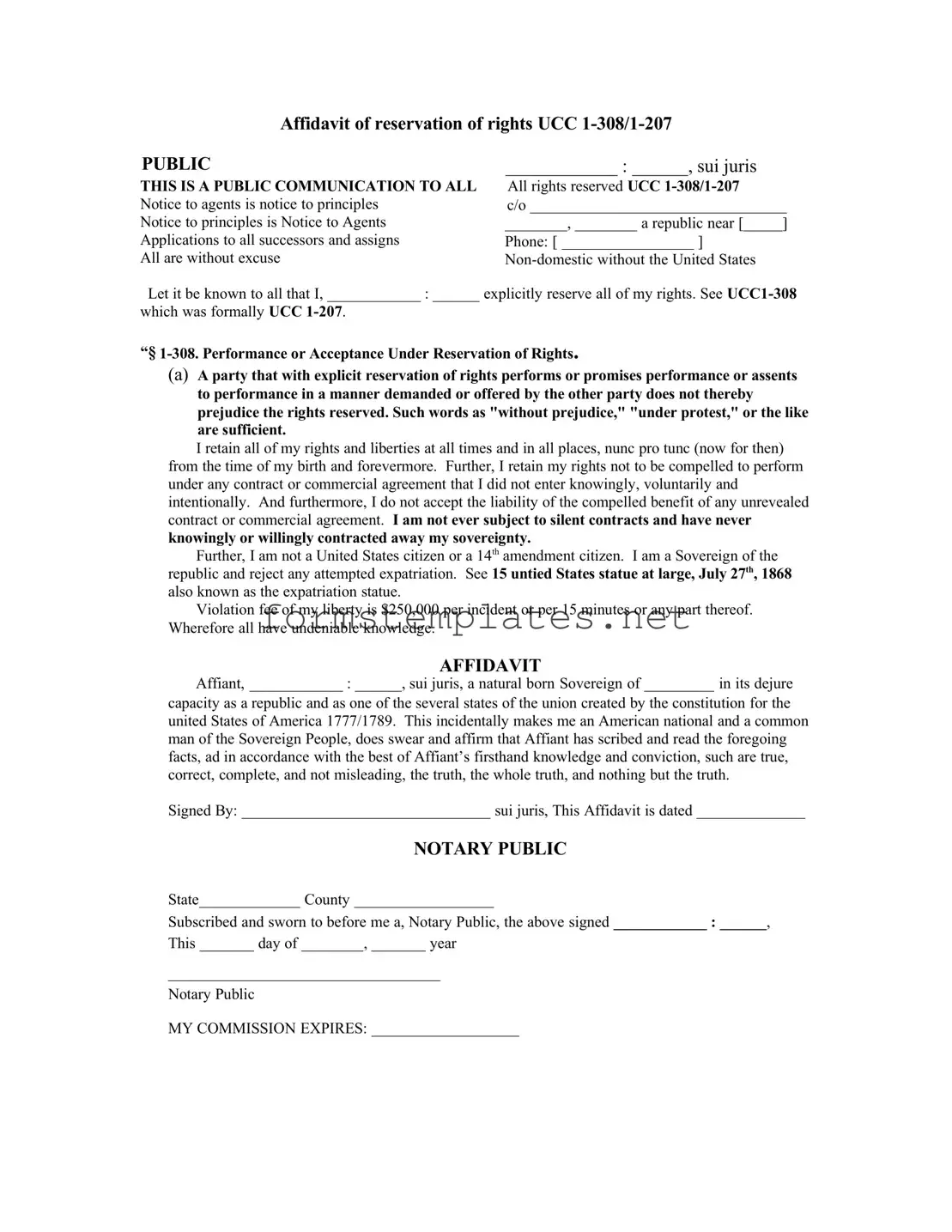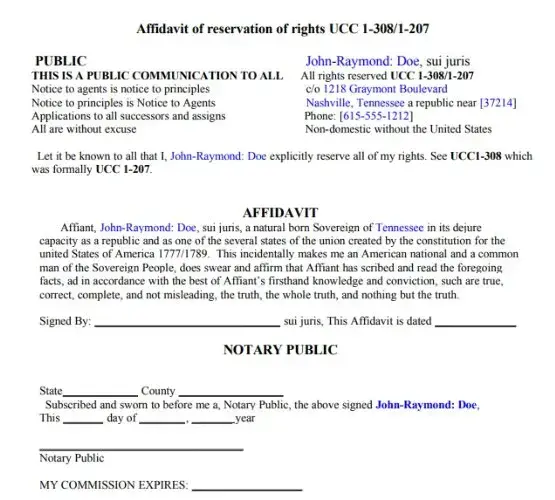Free Ucc 1 308 Template
The UCC 1-308 form, also known as the Affidavit of Reservation of Rights, is a public declaration that allows individuals to explicitly reserve their rights under the Uniform Commercial Code. This form asserts that the signer retains all rights and liberties, protecting them from being compelled to perform under any contract or agreement they did not knowingly accept. By filing this affidavit, individuals make it clear that they do not consent to any silent contracts or liabilities that may infringe upon their sovereignty.
Open Editor Now

Free Ucc 1 308 Template
Open Editor Now

Open Editor Now
or
⇓ PDF Form
Your form still needs attention
Finalize Ucc 1 308 online — simple edits, saving, and download.
